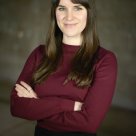For the first time in decades, Canadian researchers are probing the potential of a psychedelic drug – ecstasy – for use in psychotherapy in a clinical trial approved by Health Canada.

The Multidisciplinary Association for Psychedelic Studies (MAPS), is investigating the use of MDMA, the pure form of the party drug ecstasy, to assist therapy sessions for people with treatment-resistant post-traumatic stress disorder (PTSD).
The early research coming from this team has shown promise in treating those who suffer from some of the most challenging forms of PTSD.
Filling a gap
Currently available PTSD treatments have little effect on a certain subset of PTSD sufferers considered to be treatment resistant. Dr. Ingrid Pacey, a psychiatrist and the principal investigator for MAPS in Vancouver, says MDMA can help overcome one of the major hurdles for conventional PTSD treatments.
“With talk therapy the person’s fear starts to rise and they block,” Pacey said.
MDMA, she said, can help with those blocks by bringing down fear and anxiety.
“It means you can talk about something really difficult without being terrified. You may still feel distressed but you can go there,” Pacey said.
She has worked with trauma survivors for close to 40 years and says that in many cases traditional therapies haven’t been successful in improving quality of life for people suffering from PTSD, “people would be in therapy for 10, 15 years. It was a long time. Or if there was no access to that, they would be medicated.”
She says that therapeutic work that would take three or four years in some cases can be done in a couple of months with MDMA-assisted psychotherapy.
How it works
MAPS’ researchers emphasize that in their work MDMA is being used as a tool to aid therapy – not simply as a medication. In each six- to eight- hour session, a study subject is supervised by two trained therapists. The sessions take place in a comfortable room and combine silent reflection, often aided by music, with loose discussions of issues that arise for the subject under the influence of the drug. The therapists are there to guide the subjects through discussions of topics often too challenging to have without the aid of the drug.
The treatment currently under investigation in the clinical trial involves two to five MDMA-assisted psychotherapy sessions spaced out over the course of eight to 10 weeks and regular contact with therapists between sessions.
The Vancouver work is part of a larger study directed by the American based non-profit organization MAPS. The organization’s other trials have been conducted in The United States, Israel and Switzerland.
EXTRA: What went into equipping a Vancouver pharmacy to receive and store MDMA
One veteran’s experience
Nigel McCourry of Asheville, N.C., took part in one of these trials. He developed PTSD as a result of a combat tour in Iraq. Despite receiving conventional PTSD treatment he suffered years of nightmares, anxiety, depression and isolation — he was desperate for help.
“I actually didn’t think there was a good shot at ever improving my life. I thought I was going to be really just psychologically wrecked for the rest of my life,” McCourry said.
McCourry found out about MAPS’ experimental research and enrolled in one of their trials in South Carolina. While he had few expectations going into the study, he felt relief almost immediately after his first MDMA session. His sleep issues started improving right away and in the weeks to follow his other symptoms improved as well.
Two months after McCourry’s MDMA sessions concluded, it was determined he no longer had measurable PTSD. It has now been three years since his treatment concluded and he says he feels cured of his PTSD.
“If I was plotting the quality of my life over time, that since I’d been back from Iraq, it was just steadily going down. And then the MDMA therapy on that same plot was a turning point where, after that, my quality of life just kept going up,” McCourry said.
READ MORE: In Harm’s Way: The PTSD crisis among Canada’s first responders
- ‘Shock and disbelief’ after Manitoba school trustee’s Indigenous comments
- Invasive strep: ‘Don’t wait’ to seek care, N.S. woman warns on long road to recovery
- Norad looking to NATO to help detect threats over the Arctic, chief says
- ‘Super lice’ are becoming more resistant to chemical shampoos. What to use instead
Subjects in these trials were not only war veterans, but first responders, survivors of sexual abuse and childhood trauma. Published work from one of MAPS’ earlier Phase 2 trials found Nigel was not the only one helped by this treatment: 83 per cent of participants in a small group studied no longer had PTSD after two months and maintained this result over the next 3.8 years.
Results from the most recent Phase 2 clinical trials are expected to be published fall 2016. MAPS says the data from these trials is generally consistent with these previously published results but is not releasing exact numbers yet.
More research needed
In order for this treatment to be approved for use outside of a clinical trial setting, a Phase 3 trial will need to be conducted and results will need to be replicated on a larger scale with more study participants. The treatment will need to be proven to be both safe and effective.
Col. Rakesh Jetly, chief psychiatrist with the Canadian Armed Forces, says he sees a lot of new treatments come by his desk with promising preliminary research that can’t be replicated. However he says that the military is not ruling out the potential of this therapy.
“If the studies are replicated, if they’re published, if the safety, efficacy, all of those are shown, then it can be just another tool in the toolbox for us, for people that are having difficulties with the conventional treatments.”
Jetly adds that he is not put off by the reputation of ecstasy as a club drug.
“There is a stigma, but I think that’s a mistake … There’s no such thing as an illicit drug. You know, there’s illicit use of drugs.”
Future of use outside clinical trials
Researchers and many of the study’s subjects believe that having this treatment available widely is critical for PTSD sufferers struggling to get help. But even by the research group’s own estimation this treatment is still years away from being available to people outside the trial setting. MAPS goal is to get approval by Health Canada and the U.S. Food and Drug Administration (FDA) to use this drug in therapy by 2021.
EXTRA: Mark Haden with Maps Canada talks about the past and future of psychedelic drugs
But the organization still faces the challenges of meeting regulatory requirements, financing the work and fighting the stigma associated with this alternative research.
In the meantime, advocates insist that people will suffer without access to this therapy. Nigel McCourry, for one, believes that MDMA-assisted therapy could help prevent suicides of veterans.
“It’s a quick and direct route to feeling like you’ve turned your life around, like that struggle that you’ve been carrying is getting lighter.”







Comments